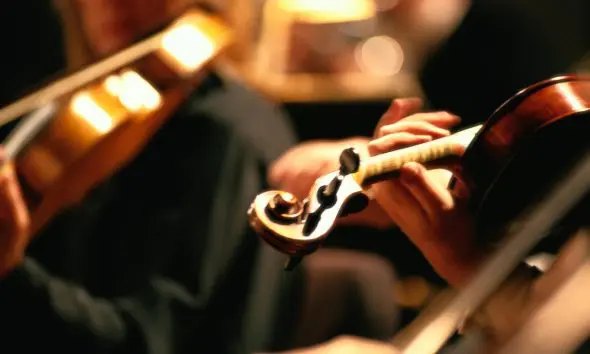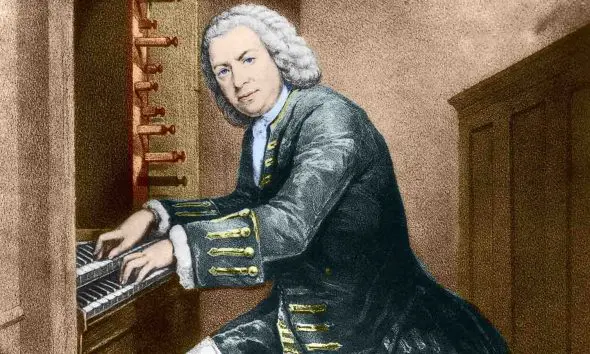Víkingur Ólafsson On ‘Mozart & Contemporaries’: Out Now
Superstar pianist Víkingur Ólafsson spoke to us about his thought-provoking new album ‘Mozart & Contemporaries’.

Following the global success of Víkingur Ólafsson’s critically acclaimed recordings of Philip Glass · Piano Works (2017), Johann Sebastian Bach (2018), and Debussy · Rameau (2020) the multi-award-winning pianist released his new album, Mozart & Contemporaries, on 3 September 2021. Ólafsson’s thought-provoking programme features some of his favourite Mozart keyboard works juxtaposed with pieces by a selection of the composer’s leading contemporaries. The Guardian noted, “The Icelandic star’s new album of Mozart and co is another winner.” Víkingur Ólafsson spoke to us about his new recording and his remarkable debut at the BBC Proms.
Listen to Víkingur Ólafsson’s new album, Mozart & Contemporaries, on Apple Music and Spotify now.
Víkingur Ólafsson On Mozart & Contemporaries
Víkingur Ólafsson’s recent visits to the UK have seen the Icelandic pianist trailing clouds of glory. In 2019, the 37-year-old won BBC Music Magazine’s Album of the Year for his crystalline Bach recording. A few months later, he was named Artist of the Year at the Gramophone Awards. A string of high-profile engagements were set to cement Ólafsson’s reputation with British audiences. But, thanks to the pandemic, it wasn’t until this summer that Ólafsson was able to return to London, making a long-awaited debut at the BBC Proms.
Absence had made the heart grow fonder: “Meet the Icelandic pianist set to take the Proms by a storm!” declared The Telegraph, while The Times confidently proclaimed that Ólafsson’s performance was “likely to be a season highlight”.
If Víkingur Ólafsson was feeling the pressure, he didn’t show it. Bach’s compact Concerto in F minor – performed with the Philharmonia Orchestra and Paavo Järvi – had all the restraint and elegance of the pianist’s lauded solo Bach recording (Johann Sebastian Bach, 2018), while Mozart’s Concerto No 24 in C minor quietly fizzed.
“It felt so good to be on stage with a real audience”
“The Philharmonia are an amazing orchestra,” says Víkingur Ólafsson, “playing with an ensemble that has their range and spontaneity is the musical equivalent of driving a Ferrari! Performing in front of almost 6,000 people was wonderful.” It was a marked contrast to last year, when Ólafsson broadcast weekly recitals from Reykjavík’s concert hall Harpa, for BBC Radio 4’s Front Row. “It felt so good to be on stage with a real audience,” Ólafsson smiles, speaking from his study at home in Iceland.
The pianist has recently moved and there are boxes of scores waiting to be added to neatly organised shelves. Víkingur Ólafsson’s tastes are omnivorous: Thomas Adès’s concerto In Seven Days is currently on the music desk. “It’s awfully complicated – seven against four, seven against six,” says Ólafsson, who is due to play the work with Adès in Iceland later this year. He’s also working on Must the Devil Have All the Good Tunes? by John Adams, the 2018 work commissioned and premiered in LA by Gustavo Dudamel, the Los Angeles Philharmonic and Yuja Wang in early 2019. It’s another fiendishly difficult piece, packed with complex rhythms and witty, gritty melodies.
“It’s a privilege to work with composers like Adams and Adès, who demonstrate openness and an acceptance that the score is not final, it is the starting point. It liberates my reading of past composers,” says Ólafsson. It’s this approach that the pianist brought to his Proms performance – and his latest recording, a focus on Mozart – with a twist.
“Mozart was an incredible performer”
“Mozart was an incredible performer – the greatest keyboard virtuoso of his time. He was also spontaneous, not always notating works so his music often sounded different on different evenings.” There are several anecdotes about Mozart propping up a blank page on the music stand when he had struggled to finish a commission, and instead improvising for the official performance. “Sometimes in classical music today we get dogmatic about things like tempi,” continues Víkingur Ólafsson, “it can actually be over-simplistic to have those sorts of rules about how we should do things.” There are also plenty of ‘rules’ about to programme Mozart. “We rarely put his music into context,” says Ólafsson, “he was part of a musical ecosystem – that is often overlooked.”
“Discovering this music really cleansed my mind”
Mozart & Contemporaries places one of the world’s most famous composers alongside some lesser-known names: Carl Philipp Emanuel Bach (1714-88); Joseph Haydn (1732–1809); Baldassare Galuppi (1706-85); and Domenico Cimarosa (1749–1801). “Discovering this music really cleansed my mind,” reflects Víkingur Ólafsson. “It was a bit like having ginger when eating sushi.”
Although Galuppi and Cimarosa are rarely heard today, they were the musical celebrities of their time. “They were the Beyoncé and Whitney Houston of their era,” laughs Ólafsson. “There’s a quote from Mozart when he describes Bach as ‘the father, and we are the children’; everyone thinks he’s talking about Johann Sebastian but actually he’s talking about Carl Philipp Emanuel. He had a big influence.”
The collection centres around pieces from the latter part of Mozart’s life, a period of turmoil and hardship, despite the composer’s fame. “You can feel the complexity in the music – it gets darker and darker,” says Ólafsson. “The little gigue is one of my favourites on the album – it’s such an anachronistic piece, it sounds like Bach meets Stravinsky! It’s almost like a twelve-tone row.”
“I believe these pieces can stand proudly next to Mozart”
Víkingur Ólafsson returns to the UK in the autumn to perform pieces from Mozart & Contemporaries as part of the International Piano Series at the Southbank Centre in London (2 October, Queen Elizabeth Hall). The pianist’s own arrangements of Cimarosa’s Sonata No 42 in D minor and Sonata No 55 in A minor surround Mozart’s Fantasia in D minor, K 397; while the first movement, ‘Larghetto’, from Galuppi’s Piano Sonata No. 34 in C minor is bolstered by Mozart’s Sonata in C minor, K 457. “I want to give these composers the weight and seriousness that their music deserves,” says Ólafsson, “Personally I believe these pieces can stand proudly next to Mozart.”
Víkingur Ólafsson’s new album Mozart & Contemporaries can be bought here.






